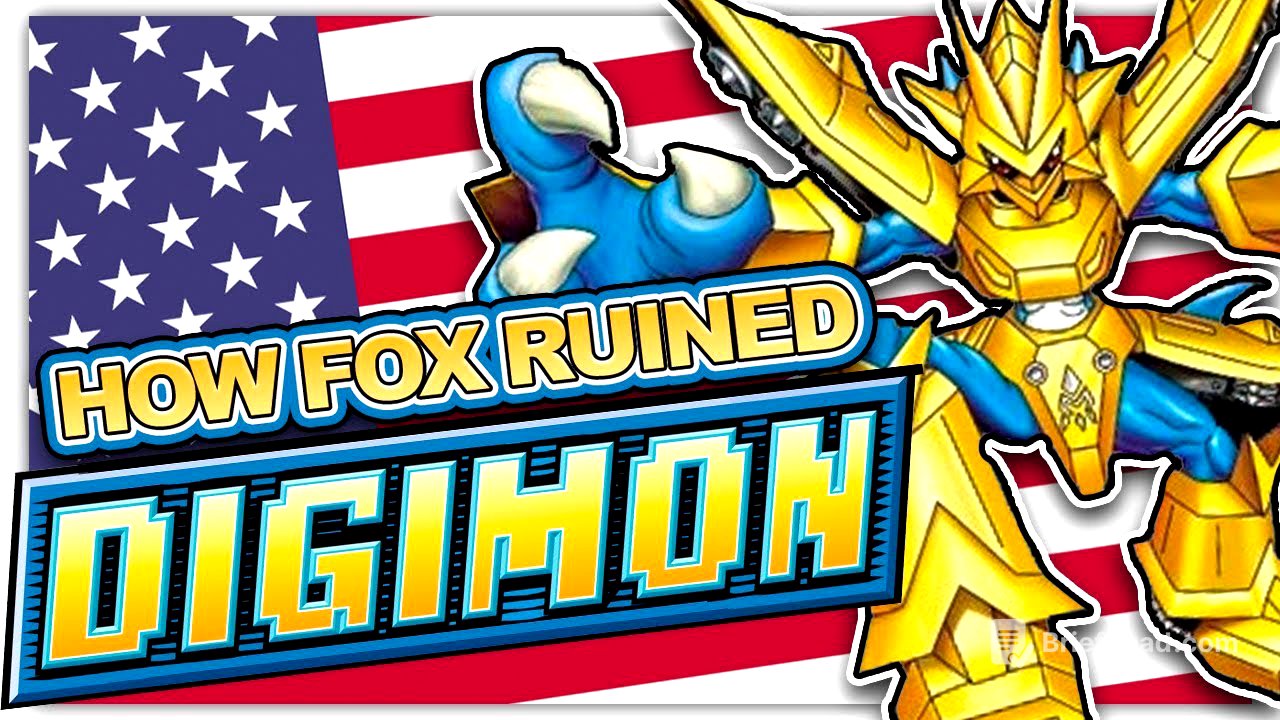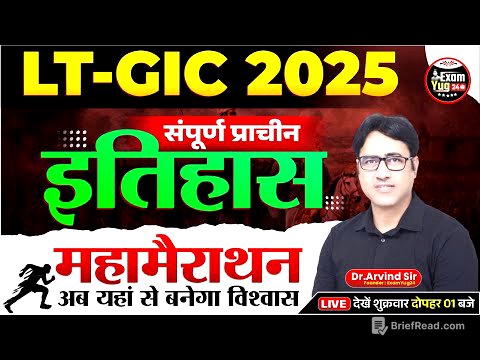TLDR;
This video reviews the English dubbed version of "Digimon: The Movie," criticizing its messy structure, poor editing, and nonsensical plot due to the combination of three unrelated Japanese short films. The review highlights the extensive cuts made to the original content, the addition of irrelevant segments, and the overall negative impact on the viewing experience. Despite a cool soundtrack, the film is deemed a disaster and the worst example of an English anime adaptation.
- The movie combines three unrelated Japanese short films, resulting in a disjointed and nonsensical plot.
- Extensive cuts and poor editing ruin the pacing and character development.
- The English dub is considered the worst anime adaptation, though the soundtrack is a redeeming quality.
Introduction [0:00]
The video introduces the topic of the "Digimon" dubbed movie, which the author considers a significant disappointment. The author compares the movie to a poorly executed fan edit, setting the stage for a critical examination of its flaws.
Background and Production [0:36]
The video explains that after the success of the first two "Pokemon" movies, 20th Century Fox wanted to replicate that success with "Digimon." Unlike "Pokemon," "Digimon" did not have a feature film but rather two short films and a 65-minute two-part film. Fox insisted on combining all three films into one, creating an overarching plot, which led to significant cuts and a disjointed narrative. The resulting film was released after the first "Digimon" series ended and the second had just begun, with Fox using the third film to promote the new series.
Initial Impressions and Critical Reception [1:54]
"Digimon: The Movie" had a widespread theatrical release, prompting mainstream critics to review it. The video quotes a review from the San Francisco Chronicle, highlighting the vast difference between what parents and children consider compelling entertainment. The author notes that with 40 minutes of footage cut, one might expect the movie to be concise, but it begins with an irrelevant promotion for another Fox Kids show, "Angela Anaconda."
Angela Anaconda and Digi Rap [2:30]
The review criticizes the inclusion of an "Angela Anaconda" short before the movie, calling it bizarre and unrealistic. This short, featuring Angela imagining violence as a Digimon, is part of the movie's runtime and considered canon. The video then transitions to the "Digi Rap," mocking its low-quality PNG images and overall production value.
First Segment: The Origin Story [4:06]
The first segment of the movie introduces Kari and Tai, with Kari narrating the events of eight years prior, when their digital adventure began. The segment shows a Digi-Egg hatching from their computer and a Digimon transforming. The narrator criticizes the unnecessary narration that explains events as they happen, undermining any potential suspense. The segment culminates in a battle between Greymon and Parrotmon, with Tai's intervention leading to Greymon's victory. The author complains about pacing and constant jokes.
Second Segment: The Internet Battle [8:10]
The second segment takes place four years after the first, introducing Izzy, a DigiDestined. The narrator explains that three years after the first segment, the kids who witnessed the Digimon fight went to summer camp and traveled to the digital world. Izzy discovers a virus Digimon eating data and contacts Tai. They reconnect with their Digimon via the Internet and battle the virus Digimon, which evolves into a higher level. As the battle continues, the virus Digimon disrupts global communication channels. Izzy uses a satellite uplink to connect to the internet, and with the help of TK and Matt, they fight Diaboromon. The high volume of emails slows their Digimon down, and Diaboromon uses Izzy's satellite uplink to launch a nuclear bomb. The narrator praises the intensity and intelligence of this plot, comparing it to director Mamoru Hosoda's later film, "Summer Wars."
Pacing and Narration Issues [11:27]
The narrator criticizes the recut pacing and Kari's narration, which ruins the tension. The narrator points out the film's inconsistent approach to explaining the plot, providing unnecessary explanations for events within the film while being snarky about elements from the series. The narrator suggests that the film could have been improved by combining the first two segments with a 10-minute interlude explaining the series to newcomers.
Third Segment: Willis and the New Cast [13:15]
The third segment introduces a new cast of characters and involves another time skip. Willis is introduced, and his name is used to connect the first two segments with the last one. Kari explains that Willis received twin Digimon the same night they got their Digi-Egg, and Izzy receives an email from Willis blaming himself for the virus Digimon. TK and Kari follow Willis to Colorado, and the new cast fights a bigger version of Cocoon, which turns them into little kids. The narrator notes that the third film was heavily cut, resulting in a nonsensical plot.
Editing and Plot Inconsistencies [14:32]
The narrator highlights the severe editing issues in the third film, which make the plot incoherent. The narrator mocks the rushed and illogical dialogue. The narrator points out a scene where a Digimon suddenly switches between its smaller and larger forms due to editing errors. The original Japanese dub had a plot about Cocoon kidnapping the original DigiDestined, which was removed in the English version.
Soundtrack and Ending [16:15]
The movie ends with "All Star" by Smash Mouth. The narrator sarcastically praises the film for being ahead of the meme curve. Despite considering the film a disaster and the worst example of an English anime adaptation, the narrator admits that the soundtrack is cool and introduced them to bands they still enjoy. The narrator mentions a music video for the song "Kids in America" made for the movie.
Final Verdict [18:59]
The narrator summarizes "Digimon: The Movie" as a messy film that fails to create a coherent narrative due to the combination of unrelated plots and heavy editing. The narrator expresses disappointment, stating that they cannot defend the film despite liking it as a child. The narrator recommends tracking down the Japanese dub of "Our War Game" instead. The narrator hopes that the recent resurgence in Digimon's popularity may lead to a re-release and redub of these films.









